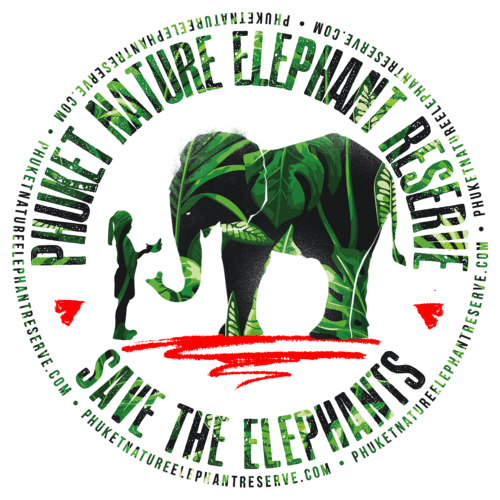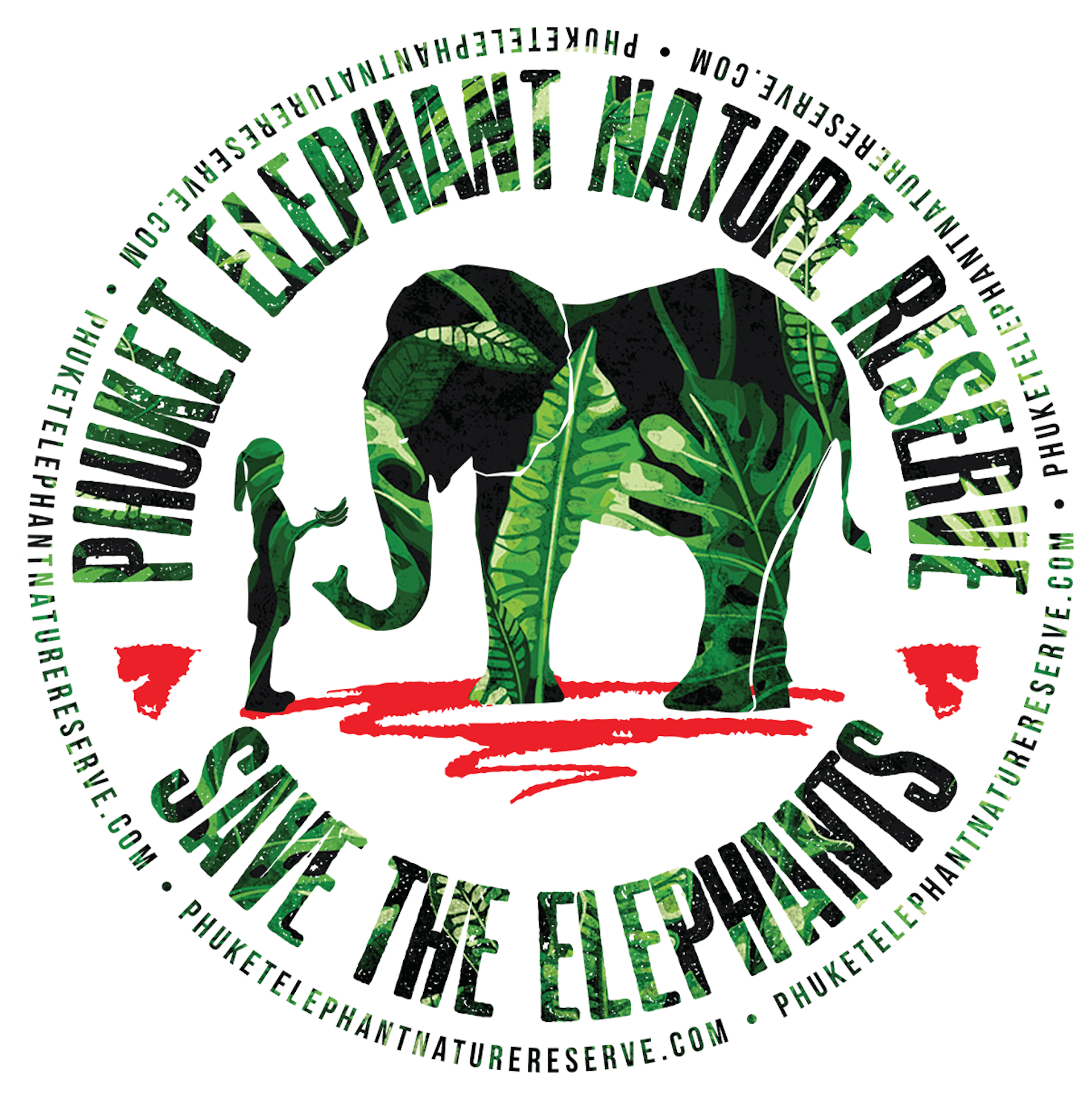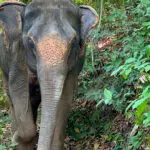With stunning landscapes, beautiful beaches, and a vibrant culture, visitors flock to Phuket from all over the world. And for many, ethical elephant activities in Phuket are an absolute must-do. But how easy are they to find? Are all sanctuaries that call themselves “ethical” actually ethical?
At Phuket Elephant Nature Reserve (PENR), we take pride in being an accredited and award-winning sanctuary dedicated to providing a haven for rescued elephants. Our ethical activities focus on observation and visitor education. This allows our elephants to live as nature intended while providing visitors with the most authentic and meaningful experience possible.
In this guide, we equip you with the knowledge to choose a truly ethical elephant sanctuary. Scroll down to find out more, and please don’t hesitate to get in touch with any questions.
Please note: All photos used on this page are of Phuket Elephant Nature Reserve.
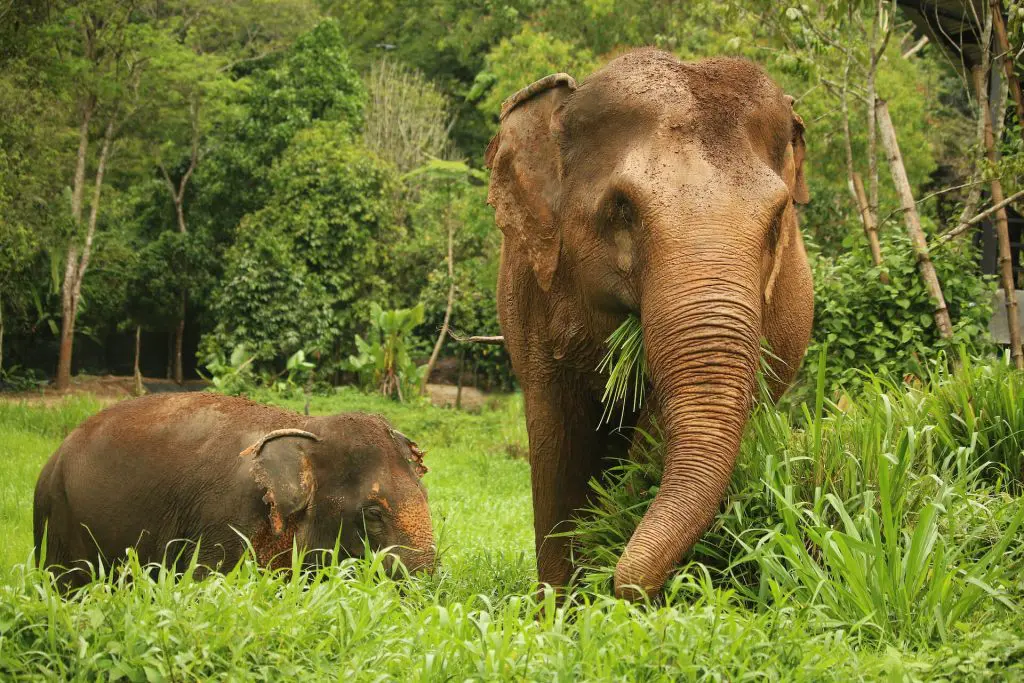
Understanding the Connection Between Thailand and Elephants
Before we show you how to pick an ethical elephant sanctuary in Thailand, it’s important to understand just how deeply rooted these gentle giants are in our country’s culture and history. These majestic creatures have huge religious importance. Buddhism, the predominant religion in Thailand, has strengthened the bond between Thai people and elephants. The gentle nature of these creatures is seen as an embodiment of Buddhist teachings.
More broadly, elephants have been revered in Thai culture for centuries, playing crucial roles in battles and royal processions. They are even a symbol of good luck! To underline everything, the Asian elephant is also Thailand’s national animal.
We take a more detailed look at this subject in our blog Why Does Thailand Have So Many Elephants? Be sure to read it when you are finished here.
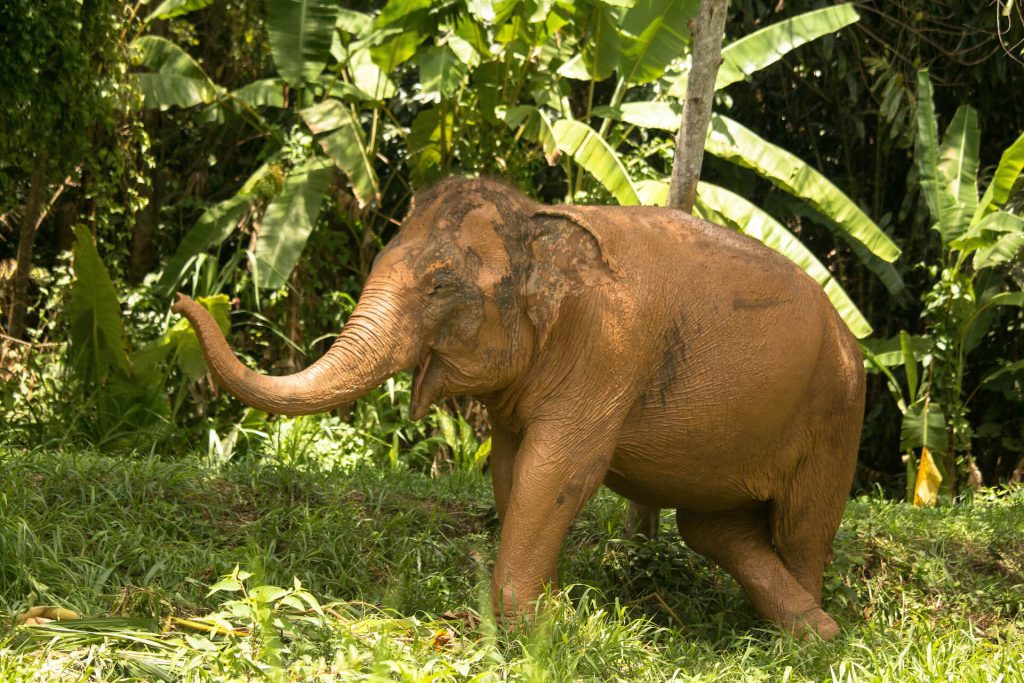
What is an Ethical Elephant Sanctuary and Why are They Needed?
While Thailand’s love for elephants is apparent, this isn’t always reflected in how some people treat them. Due to their strength and size, elephants have been used for work over generations, especially in the logging industry. They typically hauled felled trees out of the thick, dense jungle.
When the Thai government banned the use of elephants in the logging industry in 1989, there was suddenly a huge surplus of domesticated animals with no apparent use. Unable to survive in the wild, many elephants ended up in the tourist industry.
The unfortunate reality is that some establishments exploit these elephants for profit, subjecting them to unnatural and harmful practices. Riding camps, street performances, circus shows, and other forms of exploitation and mistreatment are common.
Ethical elephant sanctuaries like PENR are a response to this issue. Our mission is to rescue elephants from situations of cruelty, neglect, and exploitation, providing them with a safe and natural environment free from chains, rides, and performances.
Our blogs Why Bathing with Elephants is Unhygienic and Unethical and Should I Ride Elephants in Thailand? are great explainers as to why we don’t offer these activities.
Instead, we prioritise the well-being of our rescued elephants, allowing them to roam, socialise, and express natural behaviours. In doing so, we contribute to the conservation of these incredible creatures, promoting education and awareness among visitors.
As the importance of elephant conservation has become internationally recognised, the term “ethical” has been thrown around to tempt increasingly aware visitors. Naturally, this has muddied the waters. Many supposedly ethical sanctuaries fail to live up to their claims, continuing to exploit elephants for entertainment.
These establishments provide rides, bathing, and performances that compromise the well-being of the animals. They may also lack proper veterinary care, socialisation opportunities, and suitable living conditions.
This is why it’s more important than ever to support truly ethical elephant sanctuaries like PENR. When you visit us, you help to end the cycle of exploitation.
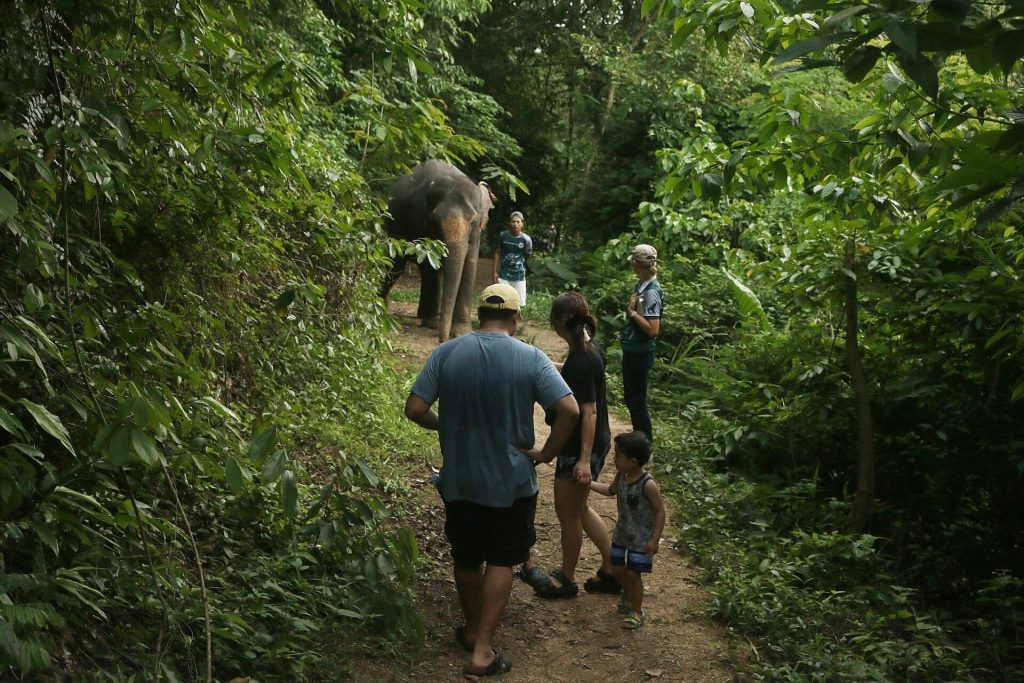
How to Choose an Ethical Elephant Sanctuary in Phuket and Thailand
As Phuket’s most ethical elephant sanctuary, we are perfectly placed to provide these key points to help you make a choice that you won’t later regret.
Research the Sanctuary’s Background
Before booking your visit, delve into the sanctuary’s history, mission, and practices. Ethical sanctuaries will be transparent about their rescue efforts, conservation initiatives, and their commitment to the welfare of the elephants.
Get to know PENR better by visiting our About Us page! And read all about how we rescued Nong Tang, the fourth member of our elephant family.
Are the Elephants Owned or Just Rented?
Many so-called sanctuaries claim to have rescued elephants from neglect and distress but have simply rented elephants from their owner. They pay a monthly rental fee to use the animals at their location. In many cases, the elephant owner will transport his or her elephants to the place offering the highest rental fee. This results in the elephant being moved around relatively frequently. Of course, this means that the animals are not rescued, but they’re also not getting a better quality of life. Sadly, they are just a pawn in the Thai elephant industry.
Before visiting any sanctuary claiming to be ethical, check whether the elephants are owned or rented. If they are rented, or if the ownership seems suspicious, this is a clear red flag.
PENR is currently home to four rescued elephants — Lotus, Bow, Thonglor, and Nong-Tang. We own our animals and they will be living with us safe, protected, and free for the rest of their lives.
Observation, Not Interaction
Ethical sanctuaries prioritize observation over direct interaction. Avoid places that offer elephant rides, bathing, performances, or any activity that involves exploiting animals for entertainment. Instead, choose sanctuaries that emphasise allowing elephants to roam freely in a natural environment.
You can rest assured that all our elephant activities in Phuket put our animals first and involve no touching.
Educational Focus
Ethical sanctuaries prioritise education and conservation. Look for establishments that offer informative programs about elephants, their natural behaviours, and the challenges they face. Engaging with knowledgeable guides enhances the overall experience and fosters a deeper understanding of these magnificent creatures.
Read our Complete Guide to Phuket’s Elephants to start your education ahead of your visit!
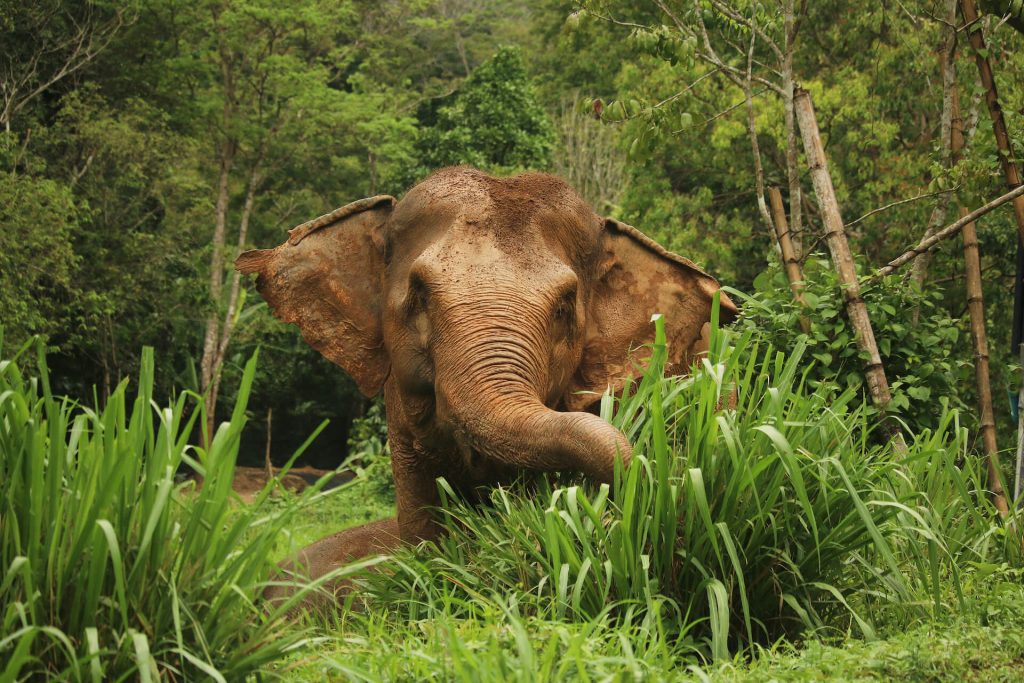
Size and Freedom of Enclosures
A key indicator of an ethical sanctuary is the size and quality of the elephant enclosures. Ensure that the elephants have ample space to roam and socialise. Ethical sanctuaries aim to mimic the elephants’ natural habitats, promoting physical and mental well-being.
Our sanctuary covers 30 rai in Phuket’s lush jungle, the natural habitat of the Asian elephant. What’s more, our elephants sleep in overnight shelters that are 20m x 10m. These generous proportions are some of the largest such shelters in Phuket.
No Chains or Restraints
In an ethical sanctuary, elephants are not restrained by chains. Observing the elephants in an unrestrained environment is a positive sign that the sanctuary prioritises their freedom and well-being.
For an insight into our daily routines, read about a morning with Phuket Elephant Nature Reserve’s elephants.
Accreditation and Awards
Check if the sanctuary has received accreditation or awards from reputable organisations focusing on animal welfare and conservation. These entities’ recognition serves as a testament to the sanctuary’s commitment to ethical practices.
Everyone at PENR takes huge pride in being named Elephant Sanctuary of the Year 2023 by APAC Insider. This is the perfect addition to our accreditation from SGS Thailand which confirms the outstanding standards of our animal welfare practices.
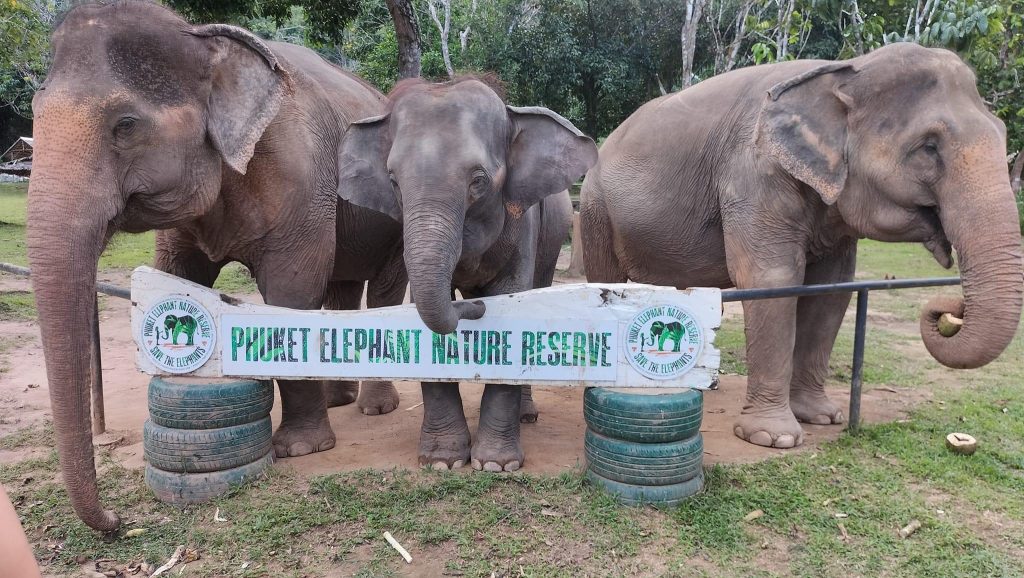
Visit PENR and Support Ethical Elephant Activities in Phuket
Now you know how to pick an ethical elephant sanctuary in Thailand, it’s time to start planning your visit! Browse our range of ethical elephant activities in Phuket to find the perfect experience for you.
Join us in fostering a culture of respect and compassion for elephants, ensuring that they thrive in a sanctuary that prioritises their welfare above all else. If you have any questions about our Phuket elephant activities or our ethical practices, please get in touch.
